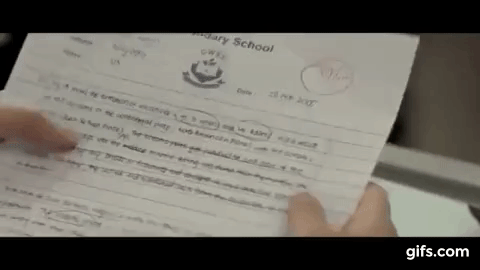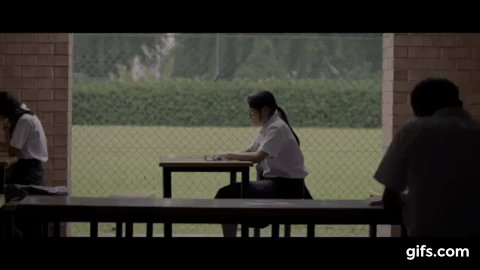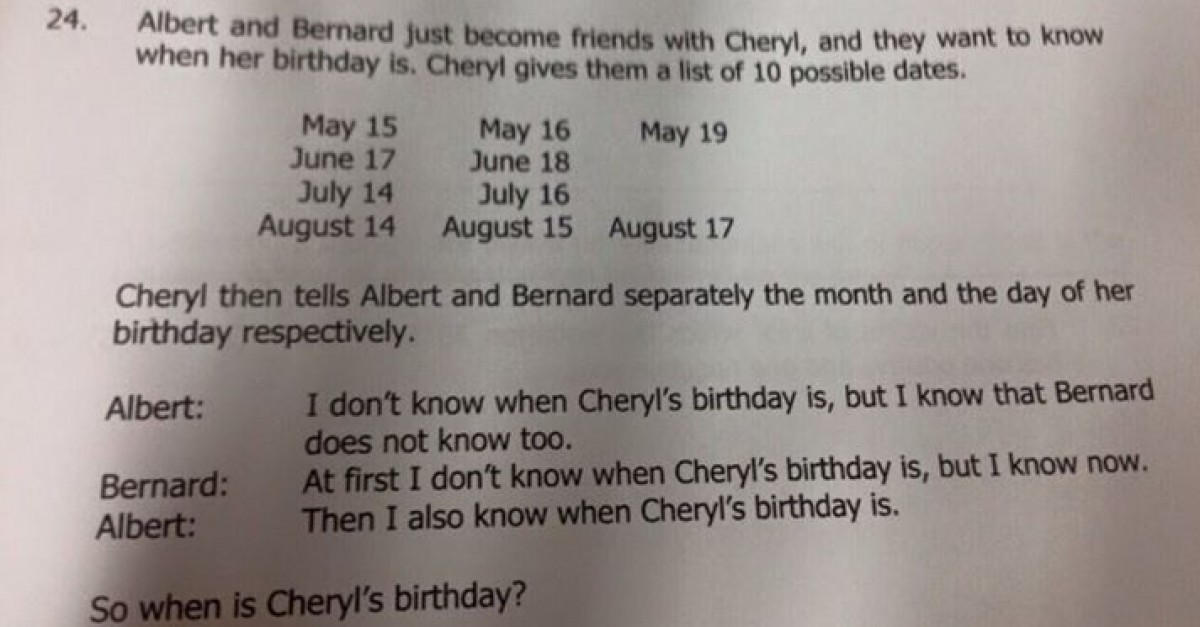Back in the day when we were still studying for our O levels, questions like the one above used to stump us for hours on end. (Okay, we admit. They still stump us for hours on end.)
It’s no wonder why so many of us had our first taste of failure then. For those of us who managed to claw our way back from failure, the journey is a rather unforgettable one – often the defining story of our teenage years.
These days, we know that it’s okay to fail here and there in school. Kids need to learn that learning isn’t about memorising phrases and filling blanks in with model answers.
As a former serial failure, I daresay you learn more about life when you’re clawing your way back just to pass than a straight A student. You build the resilience to keep pushing on despite failure – and what better way to develop this than in secondary school?

As term four kicks in, here are seven stages of grief for the typical Singaporean student that we might all have experienced at some point in our life or are going through it right this moment.
1. Shock: Receiving your exam paper with a shitty grade

Huh? 10?
2. Denial: Recounting your marks again and again only to realise it doesn’t add up to 50

Maybe it's 10 upon 10. Maybe the teacher made a mistake. Of course the teacher made a mistake. There should an extra zero at the end. Then the truth starts to sink in. You really scored only 10 marks. Out of 100. No, maybe ’cher made a mistake.
3. Bargaining: When you argue with your teacher just to get that extra half mark

Every mark counts – even if you don’t pass in the end. That means arguing with your teacher over things like “method marks” and “workings” and “language marks”.
After all, you just need enough to show your parents you put in effort. Not to mention you need to salvage some pride.
You also compare marks with your friends, who despite supposedly “not studying”, get higher scores than you. But what they’re doing is actually pretty selfish – lulling you into a false sense of security that there will be someone who doesn’t score as well as them.
But the poor 14-year-old you falls for it. Thinking that you were just unlucky this time round.
4. Guilt: When your parents remind you of how much they’ve spent on tuition

Classic parent guilt trip #1: “10 marks? Out of 100? Mommy, papa work so hard to send you to tuition, but you don’t appreciate, never work hard in school.”
Classic parent guilt trip #2: “10 marks? It’s okay, try harder next time, we send you to a better tuition centre, a bit more expensive but never mind, just tell ah gong we can't go for holiday this year.”
Poor ah gong.
5. Anger: When you blame everyone for your failure: Teacher too fat, CCA taking too much time, parents make you do too much housework etc

Typical excuses: The teacher gave wrong hint /The math paper is from an elite school so it’s very tough/ Biased teachers are biased against you / You couldn’t concentrate because your girlfriend of 3 weeks left you for a boy from the elite school with the tough math paper.
Basically, everyone is at fault except you.
6. Depression: You realise that you’re to blame for your poor grades and entering a long stage of reflection.

When crunch time comes around, you notice that even your slower friends are starting to do better than you at exams. You are alone in this struggle, and everyone’s leaving you behind. You shut off yourself from the world and wallow in self pity.
Typical activities: Listening to Simple Plan and other emo songs, binge-playing video games.
7. Hope: Waking up your idea

At some point in time, you have an epiphany on how you have been doing this studying this wrong. It might have been that you tried to memorise everything instead of learning the concept. (Or most likely maybe you haven’t been studying at all.)
Either way, you start taking out those foolscap papers/exercises books and start making those mind maps.
Let’s be honest – your grades not likely going to match up to the consistently ultra-studious, but you can at least live to fight another day and avoid being retained. But more importantly, you didn’t stop trying. And that’s something they don’t teach you in textbooks.
YOUR TEACHER
It’s tough work playing catch up on a subject you haven’t touched for months (or years). But late is better than never, and your teachers are around to help you.
Despite their busy schedules and all other duties they’re juggling, your teachers still take time out to coach and encourage poor struggling you.
That’s when you learn that the best teachers are not the ones who are the most eloquent, the most lenient, or the ones who give the least homework.
No. They’re the ones who don’t measure success in numbers. They’re the ones who recognise that students have different strengths, and not everyone fits into the mould of an ‘ideal’ student.
That’s why even though you’re not a perfect student, and have done many things you’ve regretted – an inspirational teacher can be the reason for you to change who you used to be, and show a side of yourself you didn’t know.
In the past few years, Singapore’s education system has slowly made the shift away exams, and more towards the learning process. Don’t believe us? Check out this video.
[embed] &feature=youtu.be[/embed]
The system might be changing, but a whole league of young teachers needs to lead it. If you had a teacher who believed in you in the past, this might be the right time to pay it forward – and make a young person believe in themselves again.
This article is brought to you by the Ministry of Education, which pays teachers their salaries, who in turn help us get up when we fall.
If you like what you read, follow us on Facebook and Twitter to get the latest updates.
If you like what you read, follow us on Facebook, Instagram, Twitter and Telegram to get the latest updates.
